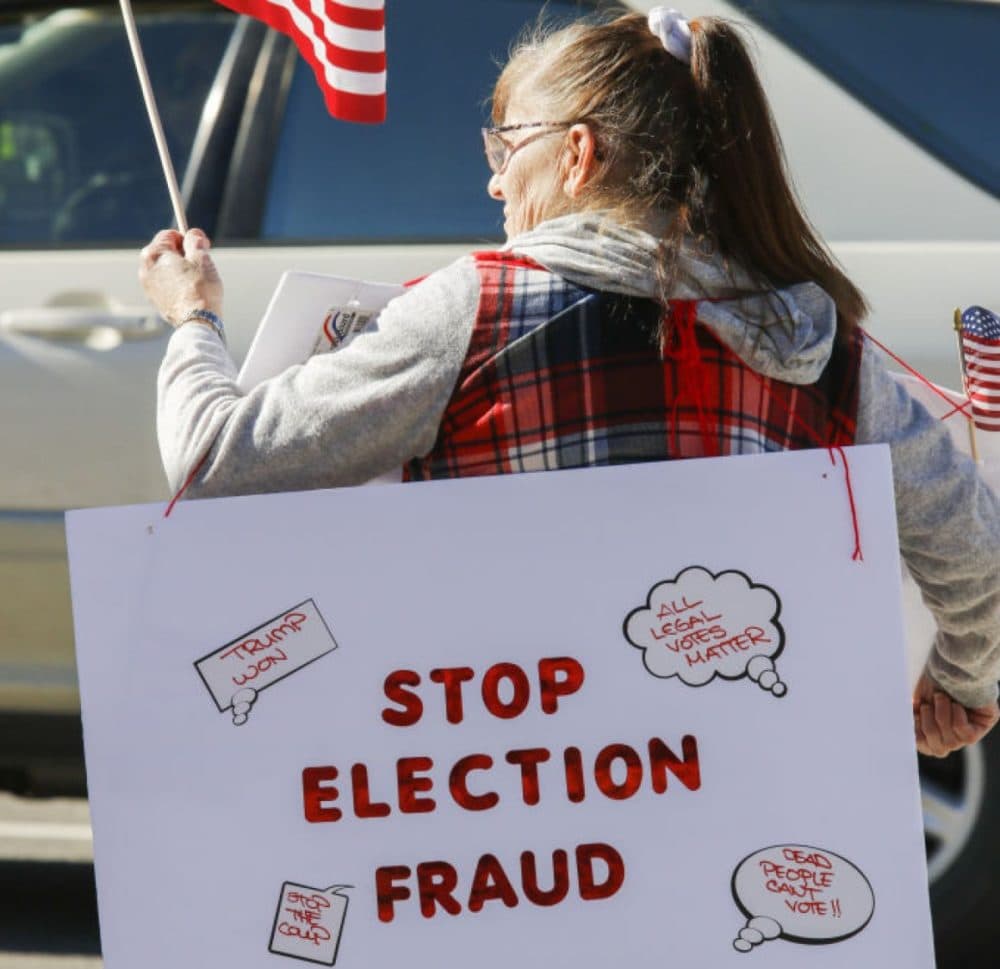Advertisement
Commentary
Disdain won’t get us far with election deniers

There is no legal requirement for a political candidate to publicly concede an election. But concession speeches have long featured in American politics, with Republicans and Democrats alike pledging to unite behind and support the electee.
These speeches often acknowledge the loss and affirm the importance of protecting the democratic process above partisanship, while vowing to continue to fight within the system for the issues at stake in the election. By focusing on the shared values of democratic governance, concessions serve to bring the often bitterly fought partisan conflict of an election to a close.
Take Rep. Tim Ryan’s concession speech to J.D. Vance in the U.S. Senate race in Ohio last week.
Ryan called it a privilege to concede his race:
... the way this country operates is that when you lose an election, you concede, and you respect, you respect the will of the people.
The statement was consciously aspirational. It's far from clear how certain candidates will behave in the closely contested elections that remain. Consider Republican Kari Lake, who was defeated by Katie Hobbs in the Arizona governor's race on Monday. Thus far, Lake has not conceded. Instead, she suggested (without evidence) that the vote was compromised, tweeting "Arizonans know BS when they see it."
Ryan’s speech named an uncomfortable truth in today’s politics: We can no longer presume candidates will concede and wish the winner well. In fact the majority of Republicans on the ballot this cycle were believers in Donald Trump’s Big Lie; and at least 173 of those candidates won their races.
In today’s world of not only contested elections, but contested election results, we should ask what methods of conflict resolution remain when candidates refuse to concede.
One approach is to rely on a third-party arbiter of disputes about elections — the judicial system. Former Vice President Al Gore turned to the courts in 2000 following his loss to George W. Bush, as did Donald Trump in 2020. But in practice, the courts pay a price in legitimacy when they serve as arbiters of the democratic process, especially since candidates are more willing to paint unfavorable judicial rulings as mere partisanship.
Another tactic is political violence. From the Jan. 6 insurrection, to the attack on Paul Pelosi, to full cans of beer being hurled at Sen. Ted Cruz’s head during a parade, we are experiencing an uptick in political violence. And as we know, violence tends to beget violence, and can easily spiral.
A third approach is to meet the refusal to concede an election — and election skepticism more broadly — from a stance of curiosity, engagement and willingness to hold open the possibility that you might be missing something; that your political opponents might have something to teach you.
In last week’s election, millions of voters showed up to the polls mobilized by the belief that democracy itself was on the ballot. In this environment, any curiosity about election skepticism may seem intolerable or absurd. Elections have consequences, after all, and to some, giving any weight to skepticism about how we cast and count our ballots may seem like dangerous lunacy, and even capitulation.
But in our view, celebrating the dignity and patriotism of the Tim Ryans of the world should not preclude sincere curiosity about why so many of our fellow Americans are losing faith in our electoral system. It should not stop us from asking why they believe the politicians who sow doubt about the validity of vote.
We can and should lift up the Tim Ryans of the world, and engage with those who are skeptical about election results.
The process of voting has changed dramatically since the onset of the COVID-19 pandemic. States have changed access to early voting and absentee voting. Many states have new, or newly relevant, processes and rules for counting these ballots — some count absentee ballots early, some don’t start counting until Election Day. And gerrymandering has ensured that we increasingly live near those with similar political leanings, so we don’t always engage with people with different points of view.
Someone else’s skepticism about the electoral process may seem less absurd if you consider that they may be encountering an election result profoundly at odds with what they were expecting (given their neighbors, given where they live), at the same time they are seeing and navigating major changes in election administration.
To be clear: there is no evidence of election fraud on any systematic or widespread basis. Anecdotes of lost or stolen ballots appear to be rare and isolated, to the extent that they can be substantiated at all. But that does not mean that those with questions and doubts are crazy, stupid or villains.
We can and should lift up the Tim Ryans of the world, and engage with those who are skeptical about election results.
The approach is a lot more productive — and more likely to lead to constructive problem solving — than condescension or disdain. Even if engagement doesn’t lead to joint problem solving around election education and administration, it may just help us find a way forward with our neighbors with different views. Isn’t that what we need the most after all?
Robert C. Bordone is a senior fellow at Harvard Law School, the founder of the Cambridge Negotiation Institute and an expert in negotiation, mediation and conflict resolution. He spent more than two decades on the Harvard Law School faculty.
Sarah Doktori is a consultant at the Cambridge Negotiation Institute and an attorney practicing in Minnesota.